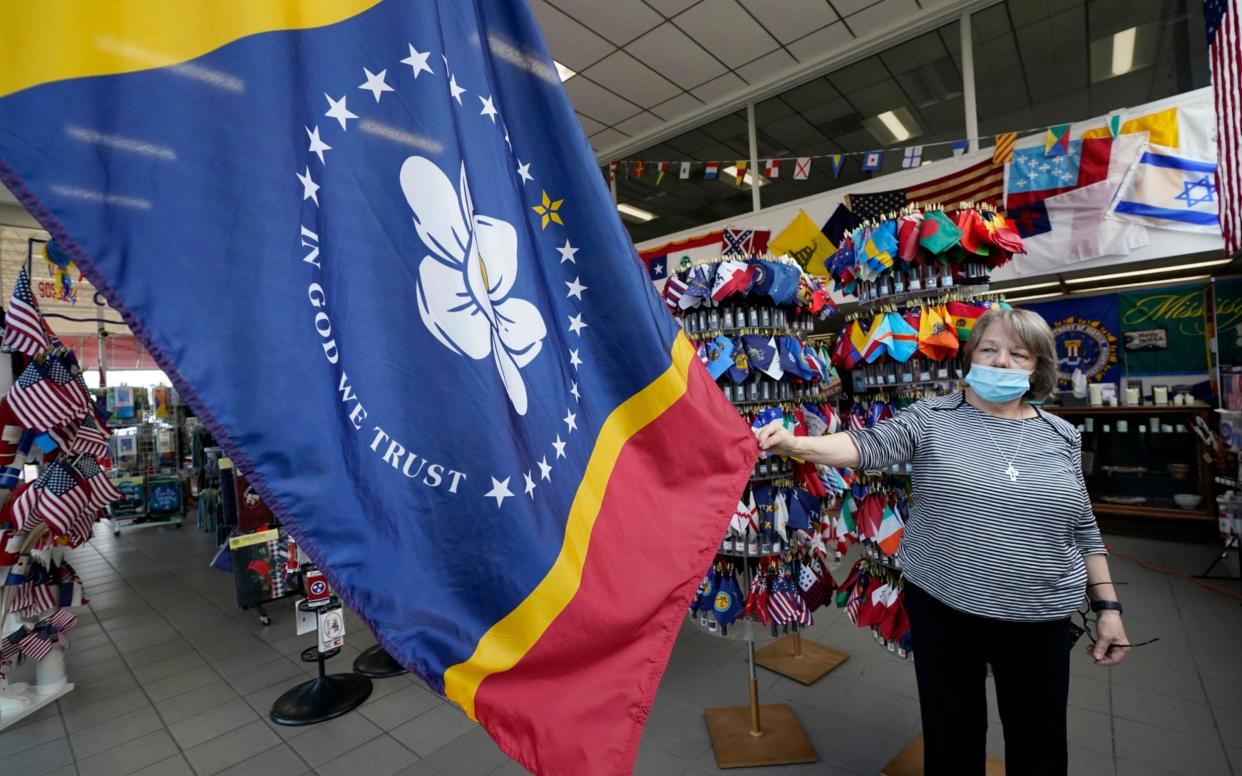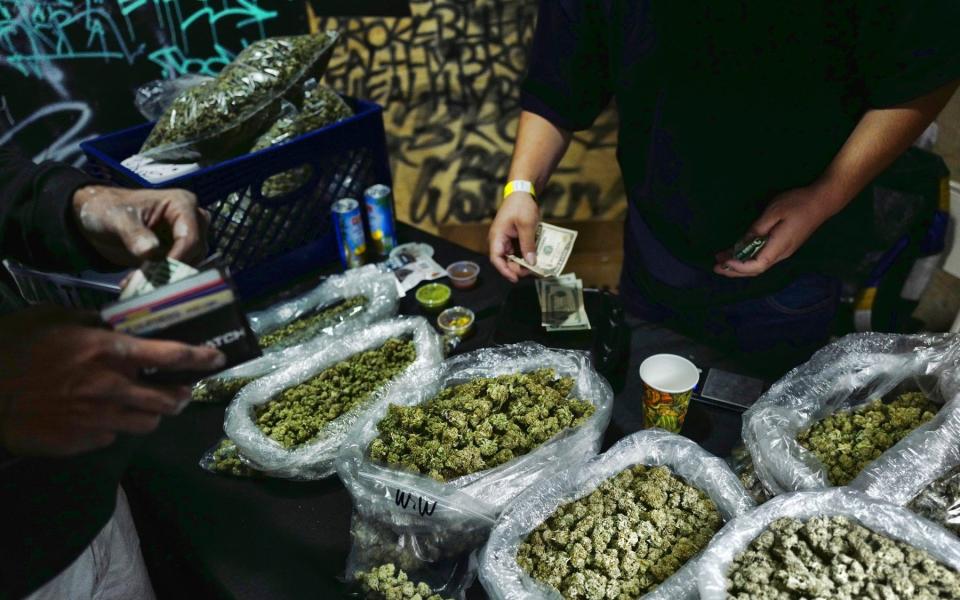Mississippi votes to remove Confederate symbol while various states move to legalise cannabis

Voters in Mississippi have approved the design of a new state flag, replacing the Confederate-themed banner which was retired earlier this year.
The old Confederate flag, which dates back to 1894, was seen as divisive, especially with its close association with the Ku Klux Klan and far-right racist groups. Even before it was phased out, a number of counties and universities in the state where 38 per cent of the population is black, refused to fly it.
The new flag will feature a magnolia, the state flower, on a dark blue background.
It was one of a number of state initiatives approved by voters in referenda across the US.
Another saw Oregon become the first US state to decriminalise hard drugs including heroin and cocaine.
The initiative, which was backed by 59 per cent of voters in a referendum, will see drug users receiving medical help rather than criminal sanctions.
Instead, they will benefit from a treatment programme funded by the $100 million a year the state makes from tax on recreational marijuana which is now legal in 15 states and Washington DC.

Voters in four states - Arizona, Montana, New Jersey, and South Dakota - backed the legalisation of recreational cannabis on Tuesday,
Its use was already legal in Alaska, California, Colorado, Illinois, Maine, Massachusetts, Michigan, Nevada, Oregon, Vermont and Washington.
Mississippi and South Dakota voted to legalise medicinal marijuana, bringing the total to 24.
The results of the latest marijuana referenda were hailed by Erik Altieri, the executive director of the pro-cannabis lobby group, NORML, who noted that it was backed by voters in Republican as well as Democrat-controlled states.
"The public has spoken loudly and clearly. They favour ending the failed policies of marijuana prohibition and replacing it with a policy of legalization, regulation, taxation, and public education. Elected officials — at both the state and federal level — ought to be listening.”
Despite the onward march of recreational cannabis across the US, it is still illegal under federal law.
This has left cannabis businesses unable to use credit cards and facing difficulties using the conventional banking system.
Should the Democrats win the White House, Kamala Harris has pledged the administration would decriminalise recreational cannabis use across the US.

